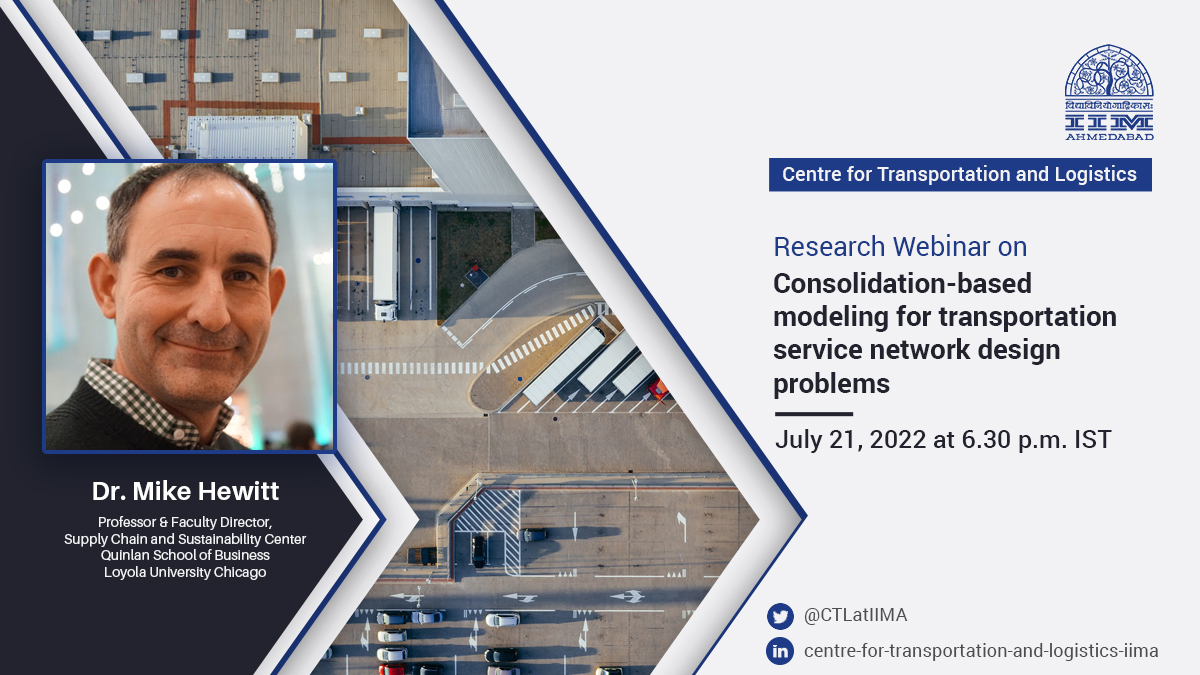
21/07/2022

Abstract
We consider the optimization problem of determining schedules for shipments on known paths within a terminal network to minimize vehicle transportation costs. We refer to this problem as the Service Network Scheduling Problem and present two mixed integer programming formulations of that problem. The first is based on the classical idea of a time-expanded network. The second formulation is new and is based on sets of shipment consolidations. We show both analytically and computationally that the consolidation-based formulation can be the superior of the two, but that its enumerative nature renders it ineffective for instances with large numbers of shipments. Thus, we also present a column generation-based algorithm for solving the consolidation-based formulation that relies on solving relaxations that are integer programs. We demonstrate the superior performance of this algorithm with a computational study wherein we compare it against applications of state-of-the-art approaches from the literature. We then consider the more complicated problem of determining paths and schedules for shipments within a terminal network, which is usually modeled as a variant of the Scheduled Service Network Design Problem. We finish with preliminary work on developing and solving consolidation-based formulations of this problem.
About the Speaker
Dr. Hewitt is a Professor of Supply Chain Management in the Quinlan School of Business at Loyola University Chicago. He also serves as the Faculty Director of its Supply Chain and Sustainability Centre. His research includes developing quantitative models of decision-making processes found in the transportation and supply chain management domains, particularly in freight transportation and home delivery. He has published fifty articles documenting his research in journals such as INFORMS Journal on Computing, Operations Research, and Transportation Science. He has collaborated on research projects with individuals at universities around the world, including multiple visiting appointments. His work has won multiple prizes and assisted the decision-making of companies such as Bayer Crop Science, Exxon Mobil, Saia Motor Freight, Schneider, and Yellow Roadway. His research has been funded by agencies such as the National Science Foundation, the Material Handling Institute, and the New York State Health Foundation. He actively supports his profession through leadership roles in his professional society and serving on editorial boards at academic journals. Before entering the PhD program at Georgia Tech, Dr. Hewitt worked as a software engineer, contributing to the development of software to support consumer set-top boxes and LED signs in mass transit stations.
